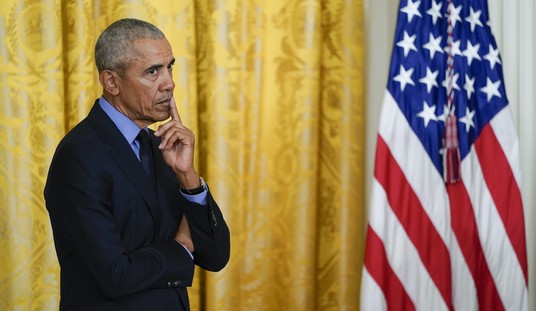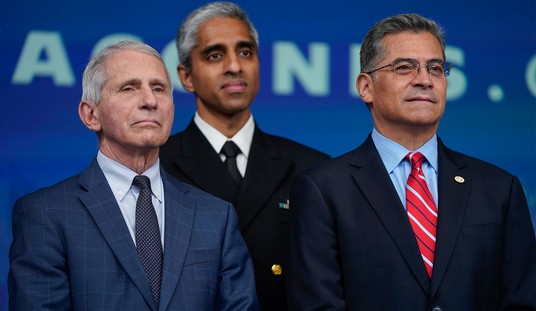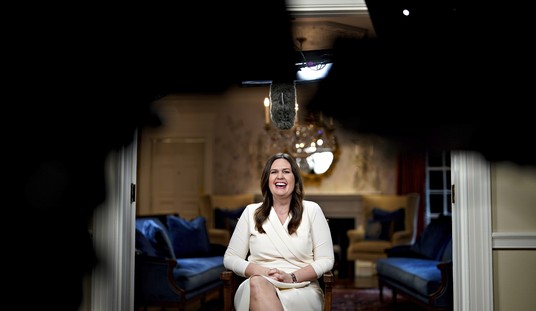Rep. Paul Ryan (R-Wis.) agrees with the president that we need to close a few loopholes in the tax code. But whereas President Obama frequently refers to tax breaks in the same breath as he disparages oil company executives and corporate jet owners, Ryan has just one goal in mind: to lower tax rates to grow the economy.
“We want to make the tax code more fair, more competitive, simpler — and lower tax rates on families, businesses and entrepreneurs so they can compete and create private sector jobs,” Ryan said yesterday in a phone interview. “The difference is, the president likes to invoke tax loopholes as part of his class warfare mantra usually to try to invoke fear, envy and anxiety as a motivator not as a means to lower tax rates to grow the economy.”
As the below video released today by the Budget Committee makes clear, Ryan’s proposals for tax reform are simple — and constitute an essential component of the plan the House passed earlier this year, what Ryan calls “the Path to Prosperity” and what everyone else refers to simply as “the Ryan plan.” But, even taken in isolation, apart from his proposals to cut spending and reform Medicare, Ryan’s ideas for tax reform could make an immediate difference for the U.S. economy and job creation.
“If you tax something more, you get less of it,” Ryan explained. “If you tax something less, you get more of it. If you tax work, savings, investment more, you’re going to get less of those things. If you lower tax rates across the board, we always see stronger economic growth result across the board. But more to the point, in the 21st century, we are now in a global tax competition. Capital is so much more mobile than it ever used to be and when we tax our employers, our manufacturers, our exporters, our job creators at rates that are much higher than our foreign competitors tax theirs, that’s when we lose. At this time, our tax rates are among the highest in the industrialized world and that’s putting us at a huge competitive disadvantage. We need to get our tax rates down so we can be more competitive.”
According to Ryan, the rest of the world knows this. They get it. In England, they’re in the process of lowering their tax rates on businesses and, in Canada, they’re lowering their tax rates to 15 percent. The U.S. has a corporate tax rate of 35 percent and, if the president has his wish, the top tax rate on competitive small businesses that file as individuals will go up to as high as 24 percent in 2013.
“That’s a recipe for disaster and it puts America at a very competitive disadvantage,” Ryan said. “It might make for good class warfare, but class warfare makes for very bad economics.”
Ryan’s ideas shouldn’t be controversial: History has borne them out time and again. And, in fact, his proposals do enjoy bipartisan support. (The Bowles-Simpson Commission called for closing loopholes to lower rates, for example). But you can bet there will also be objections.
Ryan explains why: “Congress has slipped into this comfortable mode by both political parties that they’ve enjoyed picking winners and losers. I call it crony capitalism or corporate welfare. It’s gotten out of control. You have protected industries, businesses that have been singled out for favors in the tax code. That necessarily comes at the expense of higher tax rates on everyone else. … It’s not fair and it makes businesses less competitive and it makes it harder for that entrepreneur, that person who has come up with an idea, to succeed and grow a business. We need to become a party that’s pro-market not just pro-business because pro-business can easily become confused with crony capitalism and we can’t be confused about this point. We need to become pro-market so we have the conditions for economic growth, so the new budding entrepreneurs that we’ve never even heard of yet have an easier time getting funding for their ideas and growing their businesses and competing in the world economy.”
The controversy might also come from companies who have designed their business plans around tax loopholes — but others will appreciate the lower rates.
“I think some industries especially the renewable industry feel that they [couldn’t] survive if not for these tax subsidies,” Ryan said. “Those that have organized their business plans more acutely around tax loopholes don’t want to see any change to the status quo and therefore they come and lobby against the status quo being changed. Those that can handle the tradeoff of losing a loophole in exchange for getting a lower, more competitive tax rate are willing to make that tradeoff.”
And, of course, many House-approved Republican proposals eventually stall in the Senate. That, too, could trip up meaningful tax reform.
“It would take a Senate willing to legislate and do something,” Ryan said. “We haven’t had that for a while. The Senate hasn’t passed a budget in two years. … And you have to actually have a president who is willing to show leadership on these things.”
But Ryan sees an opening — at least on the corporate side of the tax code.
“The president, in his speech, to his credit, did have a sentence dedicated to corporate tax reform and it appeared to me that he was open to closing loopholes to lower tax rates on corporations,” the Budget Chairman said. “Whether he’s willing to do that on the individual side of the tax code remains to be seen given that I think he’s fully inclined to play class warfare and that he’s calling for higher tax rates in 2013 on individuals as part of his plan to pay for his second round of stimulus spending.”
But Ryan won’t stop hammering ideas that work — because, he says, that’s his job.
“It is our job to lead. It is our job to offer up ideas and to present solutions that we know will actually grow the economy and create jobs. Another round of stimulus spending I think would get the same kind of results the last round of stimulus spending got, which is more debt and fewer jobs. These ideas — closing loopholes to lower tax rates — are ideas that have proven time and again to work to create jobs and economic prosperity and we owe it to our constituents to be offering solutions even if our partners on the other side of the aisle don’t seem to be willing to participate.”








Join the conversation as a VIP Member